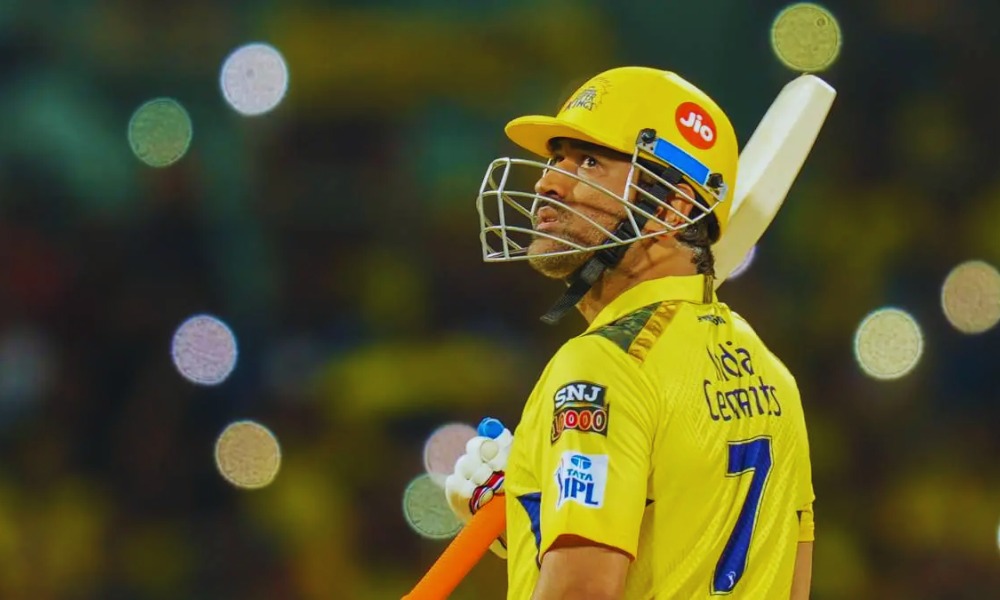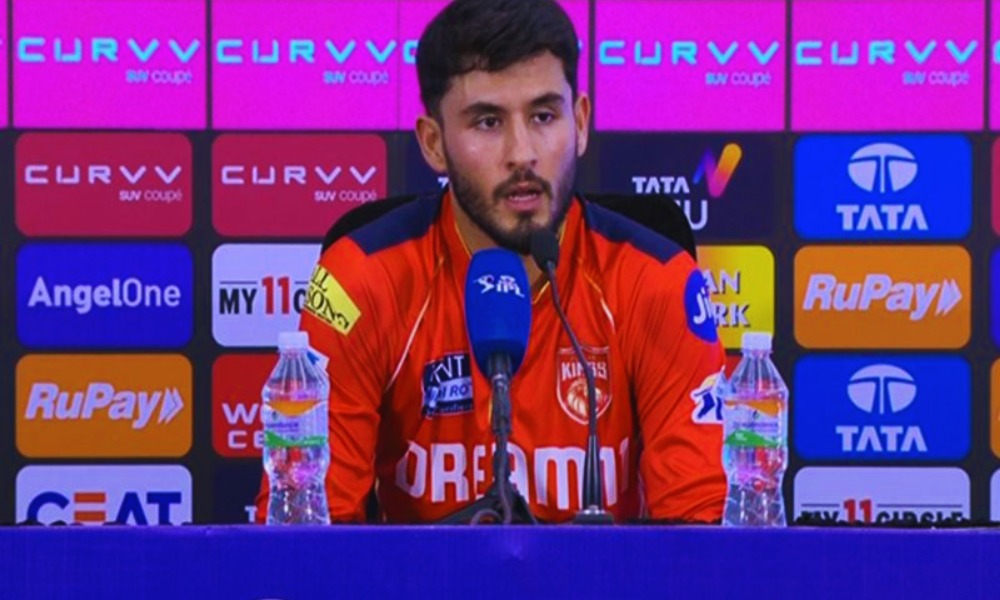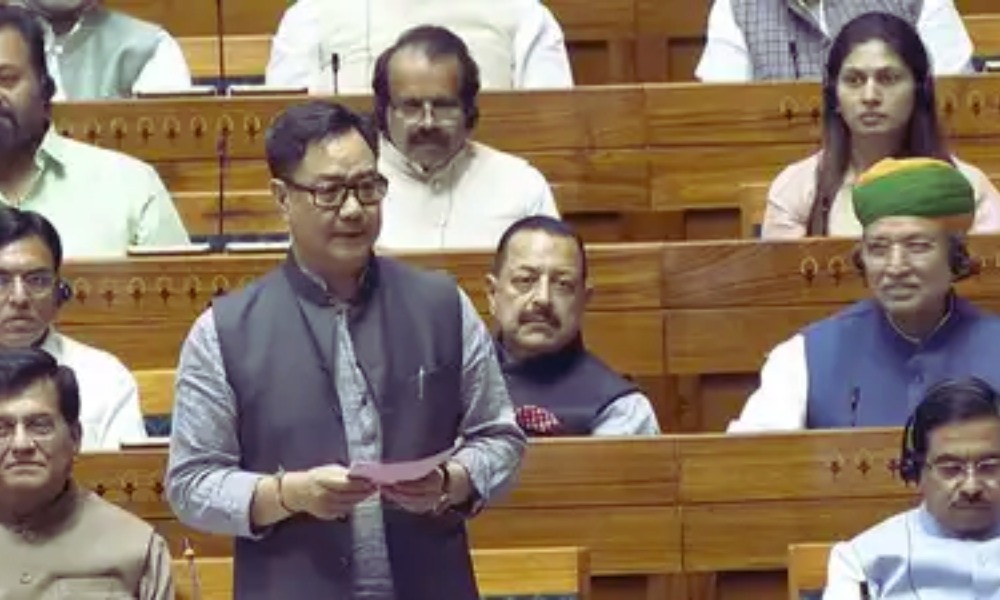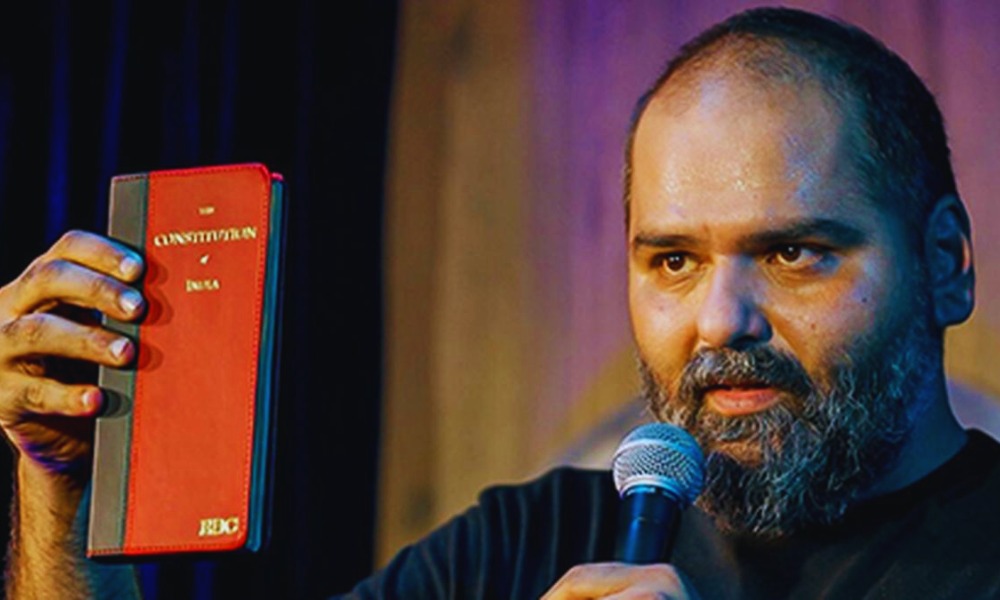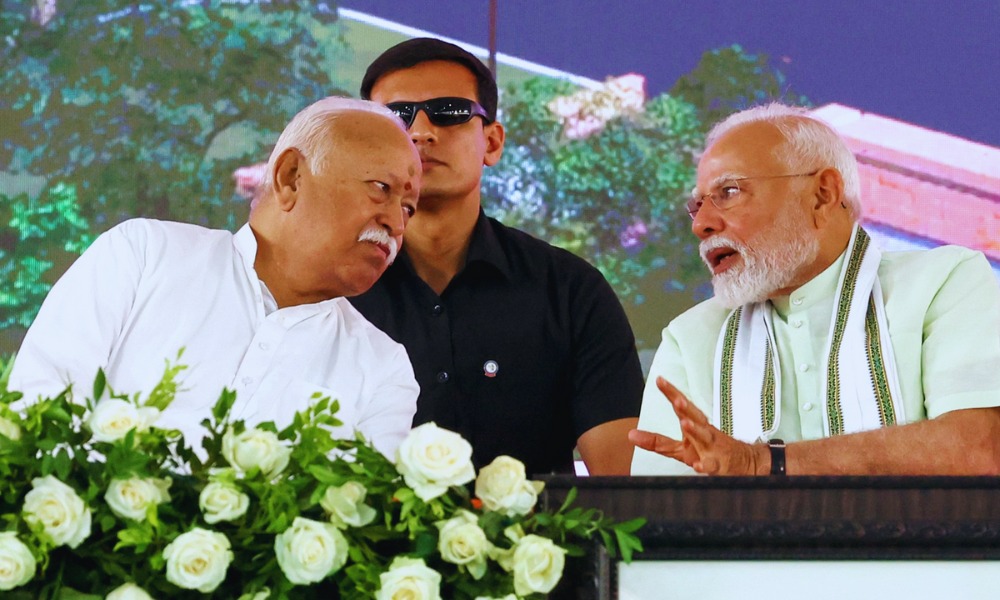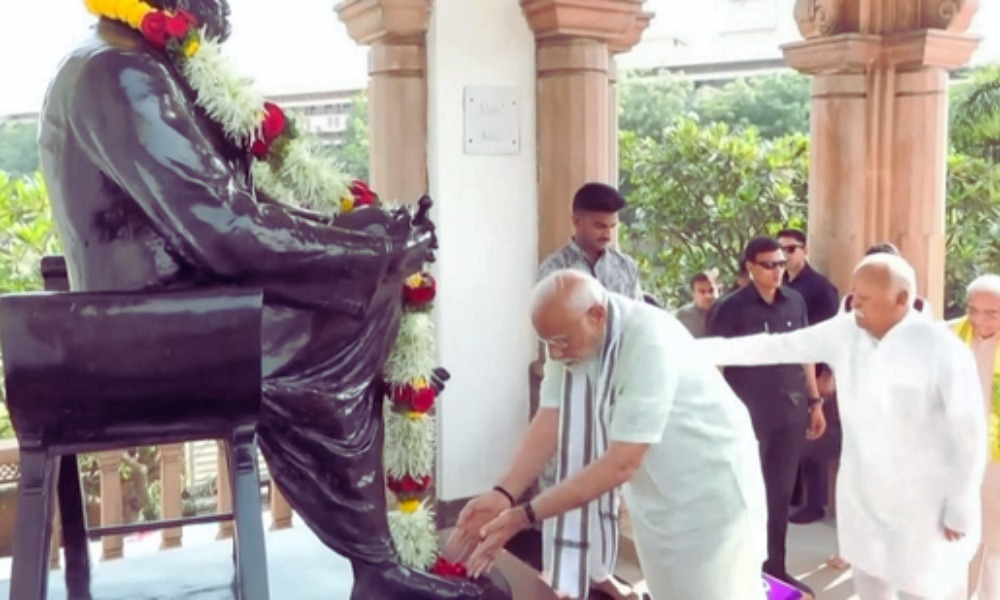Raj Thackeray Reignites Marathi Language Row, Urges Maharashtra to ‘Learn from South’
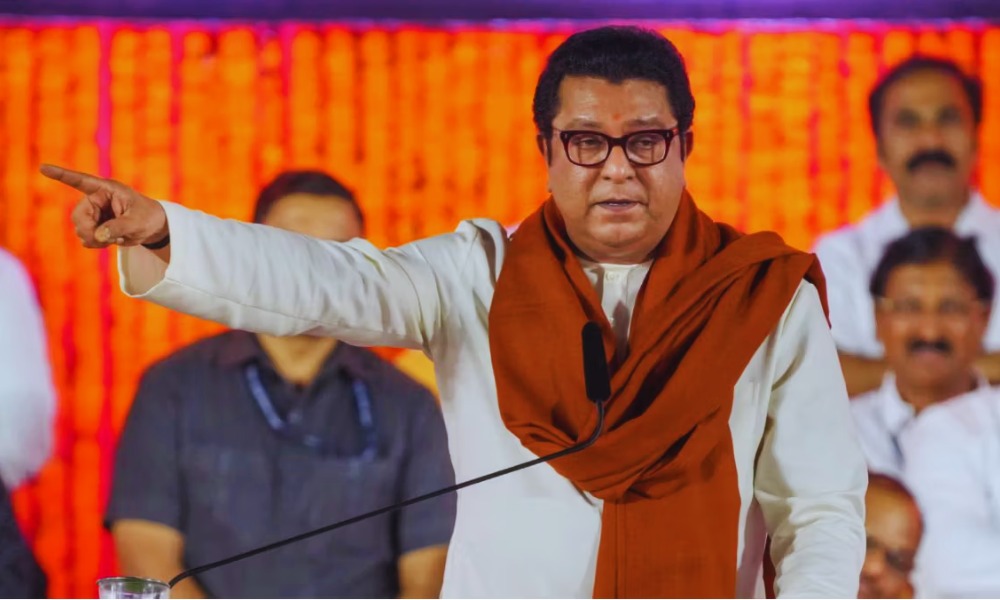
Maharashtra Navnirman Sena (MNS) Chief Raj Thackeray once again brought the Marathi language debate to the forefront during the annual Gudhi Padwa rally at Shivaji Park in Mumbai.
Emphasizing the importance of preserving and promoting Marathi, he urged the people of Maharashtra to take inspiration from the southern states, particularly Tamil Nadu and Kerala, where regional languages are fiercely protected.
Referencing Tamil Nadu Chief Minister MK Stalin and the state’s strong stance on language, Thackeray stated that Maharashtra must learn from the South and ensure that Marathi is widely spoken and respected.
He asserted, “All of you should stand firmly for Marathi. Learn from South… look at the southern states, look at Tamil Nadu. They are anti-Hindi, dared to oppose the Hindi language.”
‘Will Get a Slap on the Face’: Warning to Non-Marathi Speakers
During his address, Raj Thackeray issued a strong warning to those in Maharashtra who refuse to speak Marathi.
He stated that every state has its own language, which must be respected, and people in Mumbai should prioritize speaking Marathi over Hindi.
Thackeray also instructed MNS workers to ensure that Marathi is used in all establishments, including banks, and emphasized the need for local businesses and institutions to incorporate the language into daily operations.
‘Stop Reading History on WhatsApp’: Thackeray’s Message to Maharashtra’s Youth
In his speech, Thackeray directed a message toward the youth of Maharashtra, cautioning them against relying on social media for historical knowledge.
He claimed that WhatsApp forwards were being used to incite communal tension regarding Aurangzeb’s tomb. “Don’t we want to let the world know that these people sought to destroy the Marathas but were wiped out instead? Stop reading history on WhatsApp and rather delve into history books,” he said.
Additionally, Thackeray warned against viewing history through the lens of caste and religion.
He questioned the recent influence of cinema on historical awareness, remarking, “We have forgotten the real issues of the present time. Hindus who feel awakened after a movie are of no use. Did you learn about Sambhaji Maharaj’s sacrifice because of Vicky Kaushal and about Aurangzeb because of Akshaye Khanna?”
Maharashtra’s Language Battle and the Influence of Tamil Nadu
The ongoing language debate in Tamil Nadu has found an echo in Maharashtra, with Thackeray urging resistance against the National Education Policy’s three-language system and what he sees as the imposition of Hindi.
“Have you seen the southern states? Have you seen Tamil Nadu? See how they have opposed the Hindi language,” he said.
Thackeray, whose party has long championed Maratha pride and the use of Marathi across the state, criticized the perceived neglect of the local language in Maharashtra.
Recently, Tamil Nadu Chief Minister MK Stalin claimed that 25 Indian languages, including Marathi, have suffered due to the widespread adoption of Hindi.
His son, Udhayanidhi Stalin, further argued that several regional languages are on the verge of extinction due to their declining use.
The Dravida Munnetra Kazhagam (DMK) has strongly opposed the three-language policy, arguing that it enforces cultural homogenization, which could erase India’s diversity and diminish the distinct identity of the southern states.
Tamil Nadu has upheld its two-language formula of Tamil and English, arguing that this system has served the state well and contributed to its economic prominence as the second-largest contributor to the national economy.
BJP’s Stand on the Language Debate
The Bharatiya Janata Party (BJP) has defended the National Education Policy, stating that the policy offers a variety of languages for students to choose from, not just Hindi.
The party insists that the third language option is intended to benefit people traveling to different states and is not meant to impose Hindi on non-Hindi speakers.
In Madhya Pradesh, another BJP-ruled state, plans are underway to introduce additional optional languages in colleges, including Bengali, Marathi, Telugu, Tamil, Gujarati, and Punjabi.
However, there has been no official announcement regarding faculty recruitment or the minimum student enrollment required for these language courses.
Inder Singh Parmar, Madhya Pradesh’s Higher Education Minister, described the initiative as a step toward creating “a hub of linguistic diversity.”
DMK’s Pressure on the Central Government
The DMK continues to challenge the Central government’s policies on language and education.
The party has demanded the release of funds that were allegedly withheld due to Tamil Nadu’s refusal to implement the National Education Policy.
DMK spokesperson TKS Elangovan criticized the push for Hindi and Sanskrit-based education, stating, “The education system in Tamil Nadu is number one in India. But they want to kill the Macaulay model of education and go back to the Vedic system of education.”



